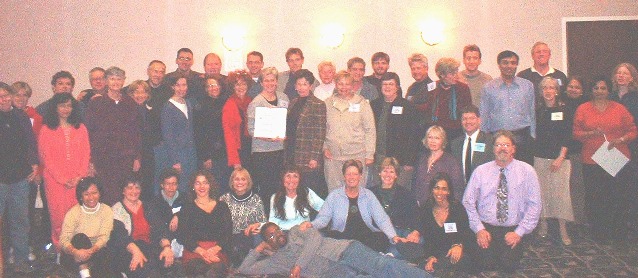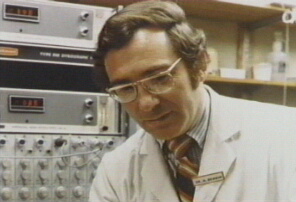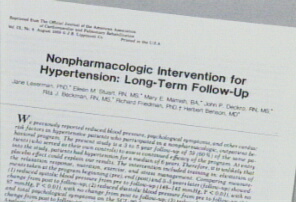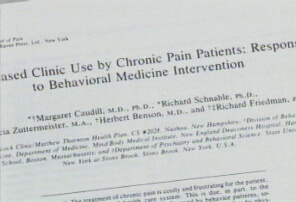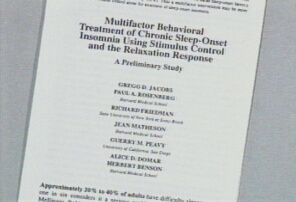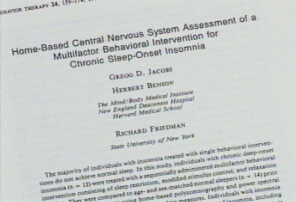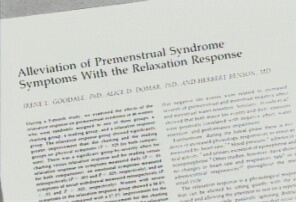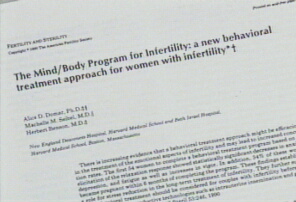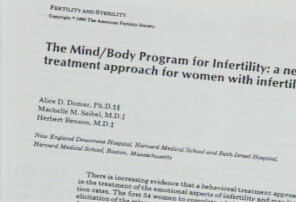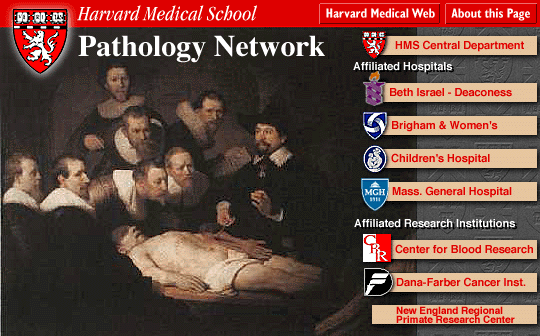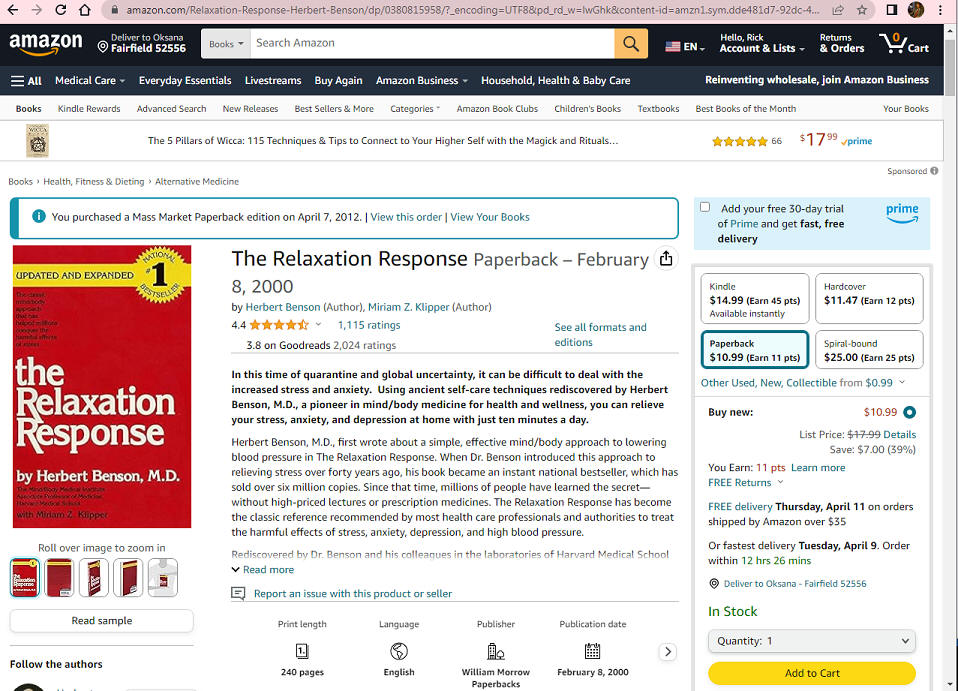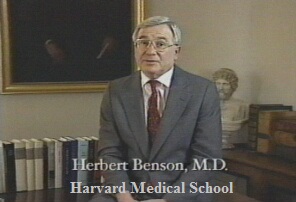
Herbert Benson, M.D. Harvard Medical School
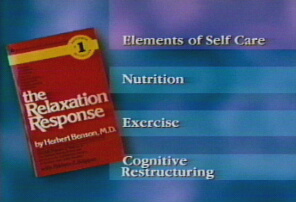
The crimson book that is a national best seller
amazon.com/relaxation+response+book
On some measurements
The Relaxation Response and Transcendental Meditation
appear to be similar.
However, TM is taught in a methodical way
by certified instructors to make sure the student
gets the maximum benefits, with free check-ups for life.
There are no such instructors for the RR
and no follow up program.
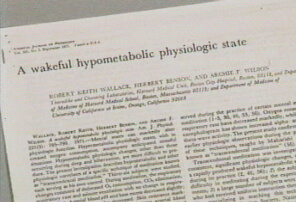
First published study on meditation by Dr. Benson:
and Dr. Robert Keith Wallace
in 1971,
"A wakeful hypometabolic physiologic state"
in the American Journal of Physiology
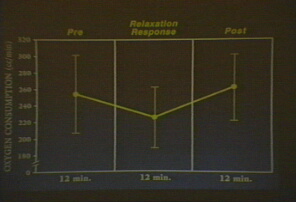
Oxygen consumption decreases during RR
without preparatory hyperventilation or other activity
indicating a low demand for oxygen during deep rest
Transcendental Meditation
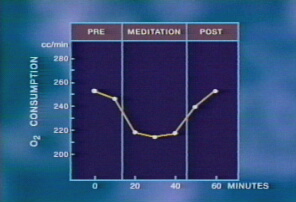
Oxygen consumption decreases during TM
without preparatory hyperventilation or other activity
indicating a low demand for oxygen during deep rest
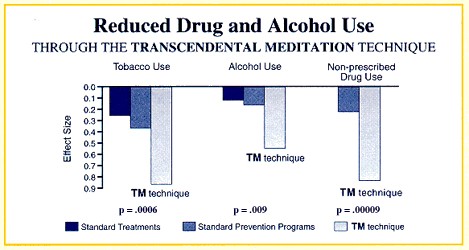
Benson, H.; Wallace, R., et al. Decreased drug abuse with Transcendental Meditation: A study of 1,862 subjects. In Drug Abuse: Proceedings of the International Conference, ed. Chris J. D. Zarafonetis, pp. 369-376. Philadelphia: Lea and Febiger, 1972.
Dr. Herbert Benson and Dr. Robert Keith
Wallace collaborated on a study
of Reduced Drug and Alcohol Use in 1862 students, while at Harvard,
specifically studying the
Transcendental Meditation technique.
Dr. Benson does not practice TM
Dr. Wallace learned TM to directly experience Transcendental Consciousness.
Dr. Wallace concluded TM is superior to the Relaxation Response.
Dr. David Orme-Johnson compares the techniques.
TMResearch/Comparison of Techniques
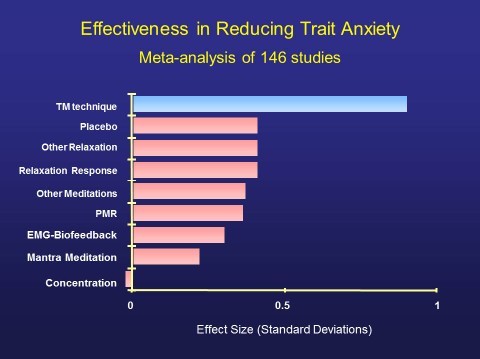
The Relaxation Response was found to be the same as a Placebo
in reducing trait anxiety in a meta-analysis of 146 studies.
Meta-Analysis 2 – Decreased Trait Anxiety through the Transcendental Meditation technique Compared to Other Meditation and Relaxation Techniques.
Trait anxiety, one’s typical state of anxiety, is a key indicator of psychological relaxation. This meta-analysis compared all techniques on which trait anxiety had been studied, 146 independent outcomes. The subject populations included in the study were college, high school, adult, psychiatric or drug abuse patients, children, adult prisoners, juvenile offenders, and the elderly. Subjects with initially high and low levels of anxiety were also studied. The techniques studied were the Transcendental Meditation technique, Progressive Relaxation (PR), Benson's Relaxation Response technique, concentration meditation, Sanskrit mantra meditation with permissive attitude, EMG biofeedback, and placebo techniques. The study found that the Transcendental Meditation program had more than twice the effect size on reducing trait anxiety as all other treatments. All the other techniques scored no better than a placebo. The exception was Concentration Meditation, which was less effective than a placebo, indicating that concentration and control of the mind can exacerbate anxiety.
This meta-analysis controlled for a number of possible confounding variables, including mental health status of the population, age, sex, experimental design, duration and hours of treatment, pretest anxiety, demand characteristics, expectation effects, experimenter attitude (whether the researcher was pro- or anti-TM), type of publication, and attrition. These controls did not alter the overall conclusions. The difference in effect sizes between the Transcendental Meditation program and other treatments was maintained even when only published studies were included, when only studies with the strongest design were included, or when only randomized studies conducted by researchers who were neutral or negative towards the TM program were included. Of all the techniques studied, only the Transcendental Meditation technique showed a positive correlation between the reduction of anxiety and length of time that the technique had been practiced. These results indicate that it is the practice of the Transcendental Meditation technique per se that causes the reduction on anxiety, not some other factors.
Reference: Eppley, K., Abrams, A., Shear, J. (1989). Differential effects of relaxation techniques on trait anxiety: a meta-analysis. Journal of Clinical Psychology, 45 (6): 957–974.

Meta-Analysis 4 – Reduced Alcohol Abuse through the Transcendental Meditation technique Compared to Peer Influence Programs, Relaxation Techniques (Biofeedback, Progressive Muscle Relaxation, Clinically Standardized Meditation, Relaxation Response), Driving Under the Influence (DUI) Programs, and Preventive Education.
There were 14 studies on the Transcendental Meditation technique and 11 on relaxation techniques. The mean effect size for relaxation techniques was .15, not significantly different from controls. By contrast, the mean effect size for the Transcendental Meditation technique compared to controls was .55 for all studies (N = 14) and also just for well-designed studies (N = 8). Moreover, the effect size was 1.35 for serious users. This suggests a pattern of positive treatment effect that cannot be attributed to weak designs of studies or studies focusing on more casual users. The results for the other standard treatment programs are from published meta-analyses in the literature, and indicate that Peer Influence is the best standard treatment.
Chronic stress causes long-lasting neurochemical and endocrine abnormities, which prolong psychological distress and impair coping abilities. Substance abuse can be seen as an attempt to restore balance to the system through self-medication. Unfortunately, the abused substances give rise to further dysfunction and imbalance in the long run. The Transcendental Meditation program provides a state of mind-body relaxation that naturally optimizes the psychophysiology, thus removing the impetus for artificial attempts to do so through drugs.2
References:
1. Alexander, C.N., Robinson, P., & Rainforth, M. (1994). Treating and
preventing alcohol, nicotine, and drug abuse through Transcendental
Meditation: A review and statistical meta-analysis.Alcoholism Treatment
Quarterly, 11, 13–88.
2. Walton, K. G., Levitsky, D. (1994). A neuroendocrine mechanism for the
reduction of drug use and addictions by Transcendental Meditation. Alcoholism
Treatment Quarterly, 11 (1/2):
89–117.

Meta-Analysis 7 – Improved Psychological Health through the Transcendental Meditation Technique Compared to Zen and Other Meditation Techniques Designed to Mimic the TM technique (Relaxation Response Techniques).
The RR was the 3rd best technique studied.
This meta-analysis of 51 studies of different meditation techniques consisting of more than 9,700 research subjects and 400 outcome findings found a significantly larger effect size from the Transcendental Meditation program compared to other forms of meditation on psychological measures (e.g., anxiety and depression). The result was maintained in the studies of highest validity and strongest experimental design.
Reference: Ferguson, P. C. An integrative meta-analysis of
psychological studies investigating the treatment outcomes of meditation
techniques. (1981). Doctoral thesis, School of Education, University of
Colorado, Boulder, Colorado, U.S.A.
Reprinted in part in: Chalmers, R. A., Clements, G., Schenkluhn, H., and
Weinless, M., (Eds.) (1989).Scientific research on Maharishi’s
Transcendental Meditation and TM-Sidhi program: Collected Papers, Vol.
3. Paper 272, pp. 2039 – 2048. Vlodrop, Netherlands: MVU Press.
